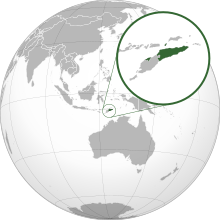
Lesbian, gay, bisexual, and transgender (LGBT) people in Bulgaria face significant challenges not experienced by non-LGBT residents. Both male and female same-sex relationships are legal in Bulgaria, but same-sex couples and households headed by same-sex couples are not eligible for the same legal protections available to opposite-sex couples. Discrimination on the basis of sexual orientation has been banned since 2004, with discrimination based on "gender change" being outlawed since 2015. In 2019, a Bulgarian court recognized a same-sex marriage performed in France. Contrastingly, in 2024, Bulgaria's parliament prohibited the “propaganda, and promotion of non-traditional sexual orientation and/or gender identity other than the biological one”.

Lesbian, gay, bisexual, and transgender (LGBT) people in Serbia face significant challenges not experienced by non-LGBT residents. Both male and female same-sex sexual activity are legal in Serbia, and discrimination on the basis of sexual orientation is banned in areas such as employment, education, media, and the provision of goods and services, amongst others. Nevertheless, households headed by same-sex couples are not eligible for the same legal protections available to opposite-sex couples.

Lesbian, gay, bisexual, and transgender (LGBT) people in Bosnia and Herzegovina may face legal challenges not experienced by non-LGBT residents. Both male and female forms of same-sex sexual activity are legal in Bosnia and Herzegovina. However, households headed by same-sex couples are not eligible for the same legal protections available to opposite-sex couples.
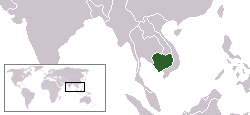
Lesbian, gay, bisexual, and transgender (LGBTQ) people in Cambodia face legal challenges not experienced by non-LGBT residents. Although same-sex sexual activity is legal in Cambodia, it provides no anti-discrimination protections for LGBT people, nor does it prohibit hate crimes based on sexual orientation and gender identity.
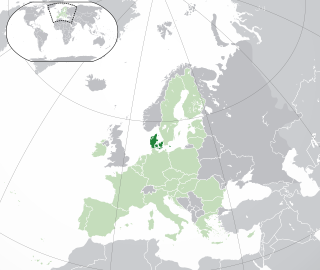
Danish lesbian, gay, bisexual, transgender, and queer (LGBTQ) rights are some of the most extensive in the world. In 2023, ILGA-Europe ranked Denmark as the third most LGBTQ-supportive country in Europe. Polls consistently show that same-sex marriage support is nearly universal amongst the Danish population.

Lesbian, gay, bisexual, and transgender (LGBT) rights in Cyprus have evolved in recent years, but LGBTQ people still face legal challenges not experienced by non-LGBT residents. Both male and female expressions of same-sex sexual activity were decriminalised in 1998, and civil unions which grant several of the rights and benefits of marriage have been legal since December 2015. Conversion therapy was banned in Cyprus in May 2023. However, adoption rights in Cyprus are reserved for heterosexual couples only.

Lesbian, gay, bisexual, and transgender (LGBT) people in Azerbaijan face significant challenges not experienced by non-LGBTQ residents. Same-sex sexual activity has been legal in Azerbaijan since 1 September 2000. Nonetheless, discrimination on the basis of sexual orientation and gender identity are not banned in the country and same-sex marriage is not recognized.

Lesbian, gay, bisexual, and transgender (LGBT) people in Moldova face legal and social challenges and discrimination not experienced by non-LGBTQ residents. Households headed by same-sex couples are not eligible for the same rights and benefits as households headed by opposite-sex couples. Same-sex unions are not recognized in the country, so consequently same-sex couples have little to no legal protection. Nevertheless, Moldova bans discrimination based on sexual orientation in the workplace, and same-sex sexual activity has been legal since 1995.

Lesbian, gay, bisexual, transgender, and queer (LGBTQ) people in Cape Verde are afforded some legal protections, and Cape Verde is considered a gay tolerant country. Homosexual activity has been legal in Cape Verde since 2004. Additionally, since 2008, employment discrimination on the basis of sexual orientation has been banned, making Cape Verde one of the few African countries to have such protections for LGBTQ people.

Lesbian, gay, bisexual, and transgender (LGBT) people in Honduras face legal challenges not experienced by non-LGBTQ residents. Both male and female types of same-sex sexual activity are legal in Honduras.

Lesbian, gay, bisexual, and transgender (LGBTQ) rights in Nepal have expanded in the 21st century, though much of Nepal's advancements on LGBT rights have come from the judiciary and not the legislature. Same-sex sexual acts have been legal in Nepal since 2007 after a ruling by the Supreme Court of Nepal.

Lesbian, gay, bisexual, transgender, and queer (LGBTQ) rights in Kosovo have improved in recent years, most notably with the adoption of the new Constitution, banning discrimination based on sexual orientation. Kosovo remains one of the few Muslim-majority countries that hold regular pride parades.
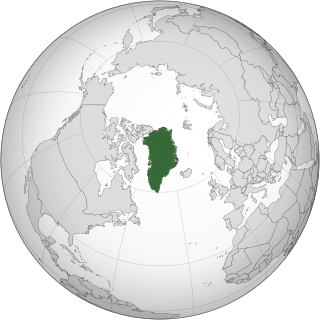
Lesbian, gay, bisexual, and transgender (LGBT) rights in Greenland are some of the most extensive in the Americas and the world, relatively similar to those in Denmark proper in Europe. Same-sex sexual activity is legal, with an equal age of consent, and there are some anti-discrimination laws protecting LGBT people. Same-sex couples had access to registered partnerships, which provided them with nearly all of the rights provided to married opposite-sex couples, from 1996 to 2016. On 1 April 2016, a law repealing the registered partnership act and allowing for same-sex marriages to be performed came into effect.
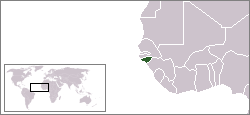
Lesbian, gay, bisexual, transgender, and queer (LGBTQ) people in Guinea-Bissau face legal challenges not experienced by non-LGBTQ residents. Same-sex sexual activity is legal in Guinea-Bissau, but same-sex couples and households headed by same-sex couples are not eligible for the same legal protections available to opposite-sex couples.
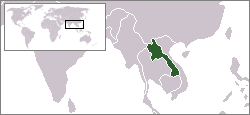
Lesbian, gay, bisexual and transgender (LGBT) rights in Laos go unreported and unnoticed. While homosexuality is legal in Laos, it is very difficult to assess the current state of acceptance and violence that LGBTQ people face because of government interference. Numerous claims have suggested that Laos is one of the most tolerant communist states. Despite such claims, discrimination still exists. Laos provides no anti-discrimination protections for LGBT people, nor does it prohibit hate crimes based on sexual orientation and gender identity. Households headed by same-sex couples are not eligible for any of the rights that opposite-sex married couples enjoy, as neither same-sex marriage nor civil unions are legal.

Lesbian, gay, bisexual, transgender, and queer (LGBTQ) people in Mongolia face legal and social challenges not experienced by non-LGBTQ people, though there have been substantial improvements since the 1990s. Homosexuality was criminalised in Mongolia in 1961 through its Criminal Code. Following the Mongolian Revolution of 1990 and the peaceful transition to a democracy, homosexuality was legalised and awareness about LGBTQ people has become more prevalent. Hate crimes on the basis of sexual orientation and gender identity result in additional legal penalties. Hate speech based on these two categories has been outlawed in the country since 1 July 2017. Households headed by same-sex couples are, however, not eligible for the same legal protections available to opposite-sex couples.
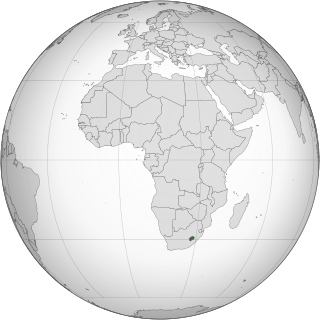
Lesbian, gay, bisexual, transgender, and queer (LGBTQ) people in Lesotho face legal challenges not experienced by non-LGBTQ residents. Lesotho does not recognise same-sex marriages or civil unions. Discrimination on the basis of sexual orientation and gender identity in employment is banned since 2024.

Lesbian, gay, bisexual, and transgender (LGBT) people in Micronesia may face legal difficulties not experienced by non-LGBT residents. Households headed by same-sex couples are not eligible for the same legal protections available to opposite-sex married couples, as same-sex marriage and civil unions are not recognized. Discrimination on the basis of sexual orientation has been illegal since 2018.

Lesbian, gay, bisexual, and transgender (LGBT) rights in the Northern Mariana Islands have evolved substantially in recent years. Same-sex marriage and adoption became legal with the Supreme Court's ruling in the case of Obergefell v. Hodges in June 2015. However, the U.S. territory does not ban discrimination based on sexual orientation and gender identity, except in relation to government employees. Gender changes are legal in the Northern Mariana Islands, provided the applicant has undergone sex reassignment surgery.

Lesbian, gay, bisexual, and transgender (LGBT) people in North Macedonia face discrimination and some legal and social challenges not experienced by non-LGBT residents. Both male and female same-sex sexual activity have been legal in North Macedonia since 1996, but same-sex couples and households headed by same-sex couples are not eligible for the same legal protections available to opposite-sex married couples.
